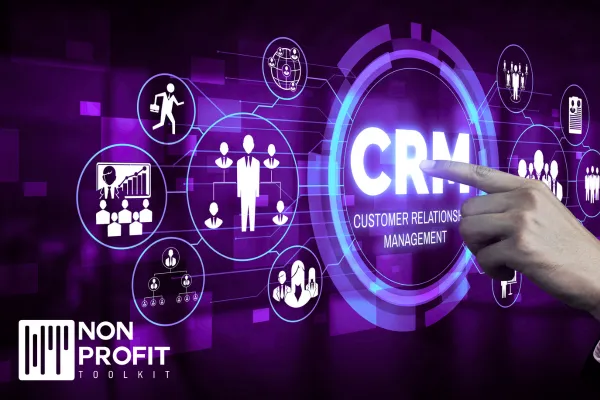
Why Every Nonprofit Needs a CRM
Running a nonprofit can be a balancing act. You’re managing donors, volunteers, events, grants, and marketing, all while trying to stretch limited resources. The problem? Too many organizations are still piecing it together with spreadsheets, sticky notes, or a patchwork of apps that don’t talk to each other.
That’s where a CRM (Customer Relationship Management system) comes in. It’s not just for big corporations. A nonprofit CRM is designed to centralize everything that matters: your people, your programs, and your progress, so you can spend less time chasing information.
1. Consolidates Contacts in One Place
Instead of scattered donor lists, email sign-up forms, and volunteer spreadsheets, a CRM gives you a single source of truth. Every donor, volunteer, and supporter is tracked in one system, with their full history of giving, attending, or engaging. That means no more duplicate records or missed follow-ups.
2. Streamlines Donor & Volunteer Management
Nonprofits thrive on relationships. A CRM makes it simple to:
Track giving history and donor preferences.
Automate thank-you emails and reminders.
Schedule volunteer shifts and send instant updates.
This creates a professional, consistent experience for your supporters and saves your team hours of manual work.
3. Reduces Admin Costs (Yes, Really)
Every hour spent manually pulling reports or chasing down RSVP lists is time (and money) pulled away from your mission. A CRM automates tasks like email campaigns, event registration, and reporting. That means fewer errors, less stress, and lower administrative overhead.
4. Improves Decision-Making with Analytics
Guessing is expensive. A CRM gives you real-time data on fundraising progress, event turnout, volunteer hours, and grant deliverables. With dashboards and reporting at your fingertips, you can make smarter decisions, prove impact to funders, and plan future campaigns with confidence.
5. Helps You Scale
Maybe your nonprofit is small today, but growth is the goal. Without a system, scaling often leads to overwhelm. A CRM creates repeatable processes, so whether you’re managing 50 donors or 5,000, the experience stays smooth and professional.
A nonprofit CRM is a necessity. It saves time, reduces costs, and creates a seamless experience for donors and volunteers. Most importantly, it helps you shift your focus back to what matters: advancing your mission.
Ready to stop juggling spreadsheets and start building impact? Check out Non Profit Toolkit your all-in-one CRM built for nonprofits.
